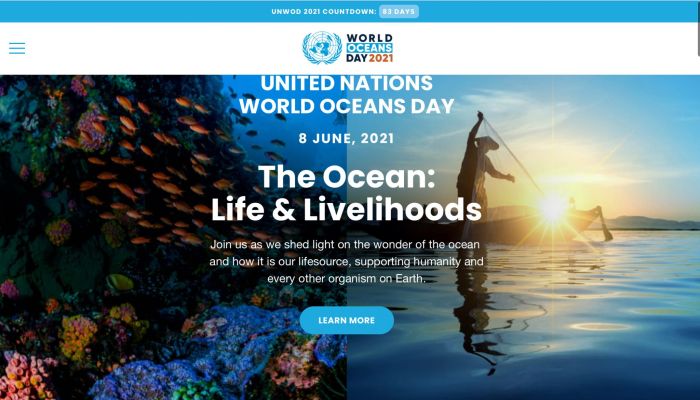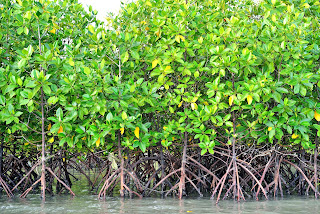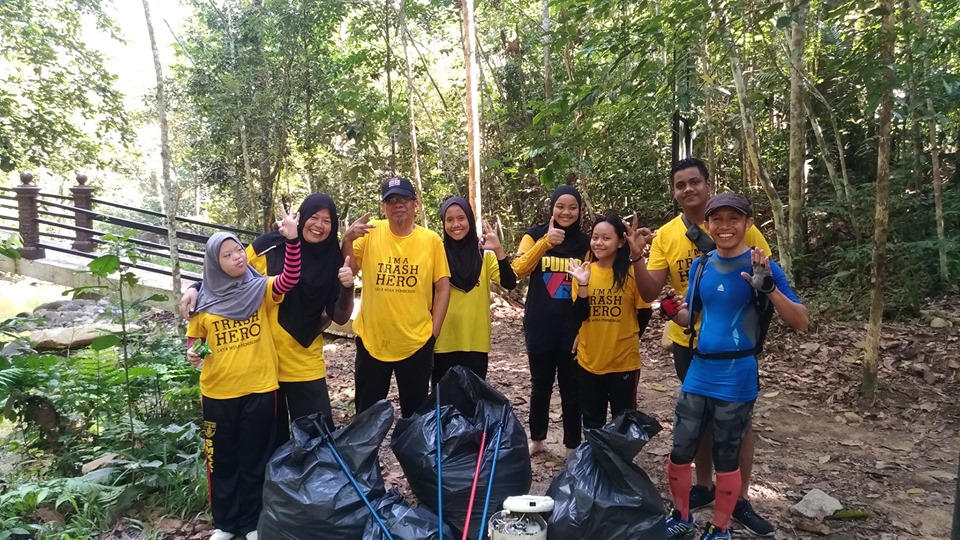 Prepared by:
Prepared by:
Prof. Dr. Mohd Fadhil Md Din 
Assoc Prof. Ir. Dr. Shamsul Sarip 
A synergy efforts from Universiti Teknologi Malaysia in preserving the beauty of the Earth
Our planet is covered by over 71% of water, out of which, 97% of it is saline. Even so, Earth remains the only planet thus far that supports known living organisms, including us humans and traces of water become the first “rule of thumb” in our scientists’ goal in determining habitable planets.

Source: Marine Insight
It remains to be seen whether the recent celebration of World Ocean Day 2021 with the theme of “Life and Livelihood”, realising its purpose or not. Humans rely on the oceans for various reasons; primarily climate regulation. In fact, the ocean provides buffers to the ongoing global warming by at least 30%.
Apart from that, by the year 2030, it is estimated that the ocean would also be the key economic dependent for over 40 million people that are interrelated to the ocean-based industries.
With the declaration of the United Nations Decade of Ocean Science for Sustainable Development 2021 to 2030, more efforts are outlined in a continuous attempt to enhance the opportunity, to strengthen any international scientific research and technologies that would ensure the sustainability of our ocean.
“Looking out to the sea, we will enjoy the seemingly endless boundaries towards the horizon. And it is up to us to protect those endless boundaries. That is how difficult it is to protect our ocean but it is not impossible. Starting with the source is always a good approach in any conservation program.”
Across the globe, there are countless agendas, initiatives and responsible entities to protect our marine life and its co-existence of the biological ecosystem; including the ocean itself. Our nation, Malaysia particularly invested in promoting the few marine conservations, scientific practices, and volunteerism activities across Corporate Social Responsibility (CSR) and Non-Governmental Organisation (NGO) routine works.
Chief among these, are the roles of the Universities all over the country. Universities act as testbeds of some sort, enabling experimentation of novel technologies, through trials and errors, in the spirit of discovering new ways while improving the “old” ways in ocean conservation. Unmanned Aerial Vehicles (UAVs) were used together with a clever artificial neural network (ANN) in recent research by our team of researchers in Geoscience and Digital Earth Centre, to map out coral reefs, even with highly distorted images and artefacts (captured by the UAVs).
Man-made structures, such as the oil rigs, underwent a fundamental study from our collaboration with Universiti Malaysia Terengganu, suggesting that there are some engineering improvements that can be done during the design of the platform, which after decommissioning, would serve as artificial reefs. It is not only on the research front that we are focusing on, working with our partners, our community also a participant in restoration programs such as Universiti Teknologi Malaysia (UTM) Wireless Communication Centre (WCC) & Ericsson Connected Mangrove program where not only mangrove trees are planted but the tree is “equipped” with the Internet of Things (IoT) for monitoring purposes.

Oceans also suffer from plastic contamination; ranging from coastal pollution to microplastics found in ocean animals. Malaysia has pledged a special commitment to single-use plastics, anchored by the Malaysian Roadmap of Single-Use Plastic 2030.
“These programs (clean-up and rehabilitation activities) is benefitting more than 100 organisations for the past few years, but the effort must be supported by a series of partnership and co-organizing mechanisms (usually falls under Sustainable Development Goals SDG-16 and SDG-17 of the United Nations) in order to push the boundaries of the impact further.”
Selected conservation of marine species (fauna and flora) is also the key contribution by stakeholders to participate in the actual plan especially towards several key locations in the national marine park of Pulau Tioman, Pulau Perhentian (Terengganu), and many other National Marine Park in Malaysia. This year, serious degradation of Mangroves zones in Tanjung Tuan (Malacca) due to a series of marine pollution contributes another specific attention by the local authorities in replanting the trees.

Source: https://trashhero.org/network/trash-hero-johor-bahru/
UTM will continue to play our small role in practising the action plan as one of the vital tasks in order to protect the ocean through our research and innovation. A number of Centres of Excellence (CoEs) are directly involved in the research, scientific outcomes and community participation, including the Centre for Environmental Sustainability and Water Security (IPASA), Ocean Thermal Energy Centre (OTEC), Centre for Coastal And Ocean Engineering (COEI) and some departments in the UTM.
The activity covers (ocean) restoration, ocean energy, marine life, and other environmental sciences work. Furthermore, a synergistic approach by UTM Campus Sustainability (UTMCS) embraces the connectivity of living laboratories to the research and community engagement throughout campaigns, volunteerism and participation in various stakeholder’s platforms.
We pioneered a series of volunteerism programmes since 2019, with reputable NGOs, such as ‘Kembaq Adventure and Trash Hero’, an event which is still continuing to date, especially in conjunction with the International Coastal Clean-Up (ICC) Day 2020 as an awareness campaign to address the litter problems in the Johor area. On a grand scale of things, we invite everyone to join us (or you can invite us to join you) in keeping our oceans clean!
Read more on our small contribution:
UTM WCC & Ericsson Connected Mangrove, https://youtu.be/TkxKEcl73d8
Source: UTM NewsHub